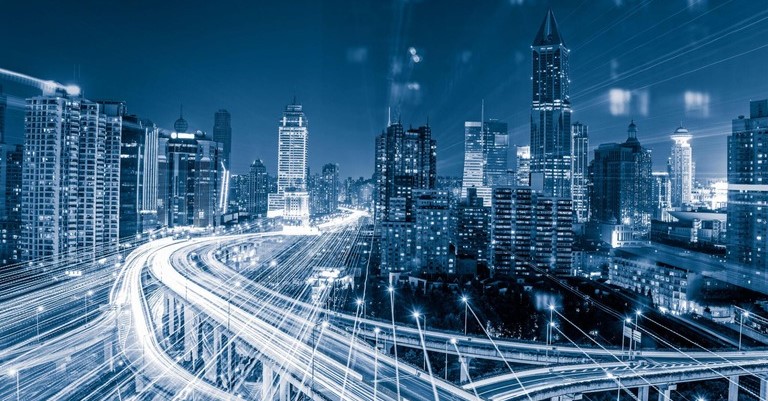The transportation industry is on the cusp of a transformative revolution. Rapid advancements in technology, evolving consumer preferences, sustainability concerns, and changing urban landscapes are driving the future of transportation. To stay competitive and relevant in this dynamic landscape, businesses, governments, and individuals must prepare for the next wave of change. In this article, we will explore key trends and strategies to navigate the future of transportation successfully.
Electrification and Sustainable Mobility
The future of transportation is undoubtedly electric. Electric vehicles (EVs) are becoming increasingly popular as consumers and policymakers prioritize sustainability and environmental consciousness. Companies and governments must invest in charging infrastructure, incentivize EV adoption, and support the development of sustainable mobility solutions to reduce carbon emissions and combat climate change.
Future of Transportation and Connected Vehicles
Autonomous and connected vehicles are set to revolutionize transportation. Self-driving cars, supported by advanced AI and sensor technologies, promise improved road safety, reduced traffic congestion, and enhanced mobility for all. Companies must invest in research and development, collaborate with tech partners, and address regulatory challenges to prepare for the widespread adoption of autonomous and connected vehicles.
Mobility-as-a-Service (MaaS) and Shared Mobility
The future of transportation is moving away from car ownership and towards mobility-as-a-service (MaaS) and shared mobility solutions. Integrated platforms offer a seamless combination of public transit, ride-sharing, bike-sharing, and more. Companies should embrace MaaS models, develop user-friendly apps, and collaborate with transit authorities to provide efficient, cost-effective, and sustainable mobility options.
Here are some interesting figures and facts about the future of transportation:
- 1. The ITF Transport Outlook 2021 projects that, as a result of economic growth and population expansion, worldwide transportation of people and products will rise significantly by 2050. Emissions from transport will increase by nearly 20% by 2050.
- 2. By 2030, most cars on the road will have zero emissions. The main cause of pollution in the UK is transport. Additionally, as the population of cities grows, more individuals will be harmed by traditional transportation-related pollution. Electrifying automobiles with renewable energy is the most practical approach to achieving zero emissions in transportation.
- 3. The transportation systems of 2050 will be very different from those of today because of automation, machine learning, hyperfast transit, and suborbital spaceflight. The subsequent elements will play a role in this revolution: Urban Sprawl and Clean Energy, Electric Vehicle Infrastructure, Hyperloops and High-speed Trains, Smart Highways and Transit Systems, and Point-to-Point Suborbital Flights.
- 4. Research indicates that a 10% decrease in the vehicle’s weight can lead to a 6% or higher improvement in fuel efficiency. Using magnesium-aluminum alloy and carbon fiber construction in place of iron and steel is one of the finest ways to make the material light.
- 5. The development of new, more intelligent energy sources, forms of transportation, and the technological and physical infrastructure needed to support them are all part of the future of transportation. The three recurring themes in transportation innovation are electrification, autonomy, and smart technology.
Infrastructure and Smart Cities
The future of transportation relies on robust infrastructure and smart city initiatives. Governments and businesses must invest in modernizing roads, bridges, and public transportation systems. Smart cities leverage technology to optimize traffic flow, reduce congestion, and enhance urban mobility. Collaboration between the public and private sectors is crucial to developing smart, interconnected transportation ecosystems.
Data-Driven Decision Making
Data is the backbone of the future of transportation. Companies need to harness the power of data analytics to gain insights into consumer behavior, traffic patterns, and operational efficiency. Data-driven decision-making enables companies to anticipate trends, optimize routes, and provide personalized mobility solutions, enhancing customer experiences and operational performance.
Talent Development and Digital Skills
Preparing for the future of transportation requires a skilled workforce. Companies should invest in talent development and digital skills training to keep pace with technological advancements. Upskilling employees in areas like data analytics, AI, and cybersecurity ensures that businesses can leverage technology effectively and drive innovation.
Environmental Responsibility and Emission Reduction
Sustainability will continue to be a driving force in the future of transportation. Businesses and governments must set ambitious emission reduction targets, promote clean energy sources, and support the adoption of green transportation alternatives. Electric vehicles, sustainable fuels, and innovative eco-friendly initiatives play a critical role in achieving environmental responsibility.
Public-Private Partnerships (PPPs)
The future of transportation demands collaboration between the public and private sectors. Public-private partnerships (PPPs) are essential for financing and implementing large-scale transportation projects. Governments can leverage private sector expertise and resources, while companies gain access to new markets and supportive regulatory frameworks.
Resilience and Crisis Management
Preparing for the future requires resilience and effective crisis management. Companies and governments should conduct risk assessments and scenario planning to anticipate potential disruptions. Building contingency plans and agile response strategies enables swift responses to unexpected challenges, ensuring continuity and sustainability.
Innovation and Experimentation
In the rapidly changing landscape of transportation, innovation is key to success. Companies must foster a culture of experimentation and embrace trial-and-error approaches. Investing in research and development and supporting startups and incubators can yield breakthrough technologies and ideas that shape the future of transportation.
Intermodal Transportation and Seamless Integration
Intermodal transportation involves the use of multiple modes of transportation to complete a single journey. The future of transportation emphasizes the importance of seamless integration between different modes, such as buses, trains, bicycles, and shared mobility services. Companies and governments should invest in creating integrated ticketing systems and improved connectivity between transportation modes to enhance convenience for passengers and encourage multi-modal travel.
Inclusive and Accessible Mobility Solutions
As transportation evolves, ensuring inclusive and accessible mobility solutions becomes essential. Companies and policymakers must prioritize the needs of elderly individuals, people with disabilities, and underserved communities when designing transportation services. Accessible public transportation, digital solutions for trip planning and real-time information, and community engagement efforts are vital to fostering an inclusive transportation ecosystem.
Circular Economy and Sustainable Materials
The future of transportation demands a shift towards a circular economy, where materials and resources are recycled and repurposed to minimize waste. Companies should explore sustainable materials for vehicle manufacturing, develop eco-friendly packaging, and adopt practices that reduce the environmental impact of transportation operations.
Energy Efficiency and Alternative Fuels
Energy efficiency is a crucial consideration in the future of transportation. Companies must explore alternative fuels, such as hydrogen, biofuels, and renewable energy sources, to power vehicles and reduce greenhouse gas emissions. Investing in research and development of energy-efficient technologies and supporting infrastructure for alternative fuels will be instrumental in achieving a sustainable transportation future.
Cybersecurity and Data Protection
As transportation becomes more interconnected and reliant on technology, ensuring cybersecurity and data protection becomes paramount. Companies and governments must prioritize cybersecurity measures to safeguard transportation systems from cyber threats and potential disruptions. Additionally, protecting customer data and ensuring privacy are critical to maintaining consumer trust and confidence.
Regulation and Policy Frameworks
Preparing for the future of transportation requires thoughtful regulation and policy frameworks. Governments should develop supportive policies that encourage innovation, investment, and sustainable practices in the transportation sector. Clear guidelines for autonomous vehicles, electrification incentives, and public-private partnership regulations are essential in fostering a conducive environment for transportation advancements.
Public Awareness and Education
Preparing for the future of transportation involves public awareness and education initiatives. Companies and governments should communicate the benefits of sustainable transportation solutions, autonomous vehicles, and new mobility concepts to the public. Raising awareness and addressing misconceptions can facilitate smoother adoption and acceptance of future transportation technologies.
Collaboration and Global Partnerships
The future of transportation is a global endeavor that transcends borders. Collaboration and partnerships between countries, cities, and companies are crucial in tackling shared transportation challenges. International cooperation on research, technology standards, and sustainable mobility initiatives can accelerate progress and drive positive change in the global transportation landscape.
Smart Infrastructure and IoT Integration
Smart infrastructure, integrated with the Internet of Things (IoT), plays a key role in the future of transportation. Sensors and connectivity enable real-time monitoring of traffic, road conditions, and public transportation systems. Investments in smart infrastructure and IoT integration are vital to optimizing transportation efficiency and enhancing overall mobility experiences.
Flexibility and Adaptability to Change
The future of transportation is inherently uncertain, and flexibility and adaptability are essential attributes for success. Companies and governments must remain agile and open to change as new technologies and market dynamics evolve. A culture of continuous improvement and adaptability will ensure that transportation stakeholders can navigate challenges and capitalize on emerging opportunities.
The future of transportation presents a landscape of innovation, sustainability, and connectivity. To prepare for the next wave of change successfully, companies and governments must prioritize electrification, autonomous vehicles, and shared mobility solutions. Inclusive and accessible transportation, circular economy practices, and energy-efficient technologies are critical for building a sustainable and resilient transportation ecosystem.
As technology and consumer preferences evolve, cybersecurity, data protection, and public awareness initiatives will be vital in navigating the changing transportation landscape. Collaborative partnerships, supportive policy frameworks, and investments in smart infrastructure will drive progress on a global scale. Embracing flexibility and adaptability allows stakeholders to navigate the uncertainties of the future with confidence, ensuring that the future of transportation is a dynamic and transformative journey for all.






